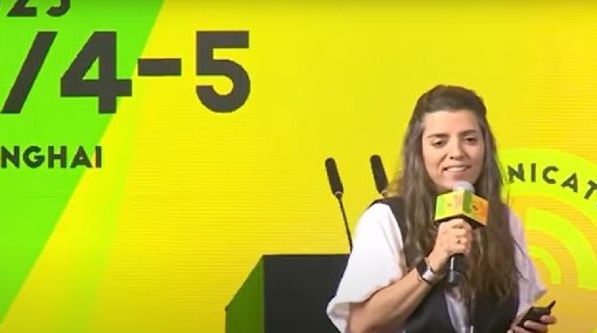
"TeleSUR is a channel for Latin Americans and the Caribbean made by the Latin Americans and the Caribbean," Patricia Villegas pointed out.
Beijing, May 23 (RHC)-- During the "Communication in the Global South" forum held at the University of Shanghai on Monday, representatives of public media such as Press TV, Russia Today (RT), China's CGTN, and teleSUR exchanged experiences on the challenges of alternative communication in countries where the U.S. and its allies maintain sanctions and blockades.
During her speech, teleSUR President Patricia Villegas recalled that this Latin American-based, multi-state communication platform made its first television broadcast on July 24, 2005, a date on which Venezuelans remembered the 222nd anniversary of the birth of the Liberator Simon Bolivar, an ever-present figure in the Latin American social and political struggles.
"TeleSUR is a channel for Latin Americans and the Caribbean made by the Latin Americans and the Caribbean," she said to emphasize the essence of an alternative communication project that has managed to overcome multiple challenges since then.
As a result of its commitment to making peoples' struggles visible, teleSUR suffered bans during the administrations of Lenin Moreno (2017-2021) in Ecuador and Mauricio Macri (2015-2019) in Argentina as well as during the U.S.-backed coup against President Evo Morales in Bolivia in 2019.
Villegas pointed out that teleSUR has faced this sort of politically motivated censorship by expanding the channels through which it disseminates its information worldwide. “Our strategy has been to distribute our signal on different platforms. While in some places we broadcast in open signal, in other places we do it through satellite television,” she said, adding that teleSUR collaborates with all cable companies that want to transmit its signal, no matter how small or large they are.
"All of this has been essential for the teleSUR signal to continue reaching many parts of the world, despite attempts at persecution, blocking and censorship."
Referring to the coverage of the Ukrainian conflict, teleSUR president highlighted that this Latin American media also took on the challenge of presenting an alternative vision. For this, teleSUR sent two teams of correspondents, one to Kyiv and the other to Donbas.
"Having teams with different perspectives on the facts allows us to give our audience a much more complete version of what is happening," Villegas explained, adding that this journalistic practice allowed teleSUR to show what others are trying to hide.
"One case moved me very much. Ukrainian soldiers called the mother of a Russian soldier to show her how they killed him in real time. The Western corporate media does not show such things but that is happening in this conflict

